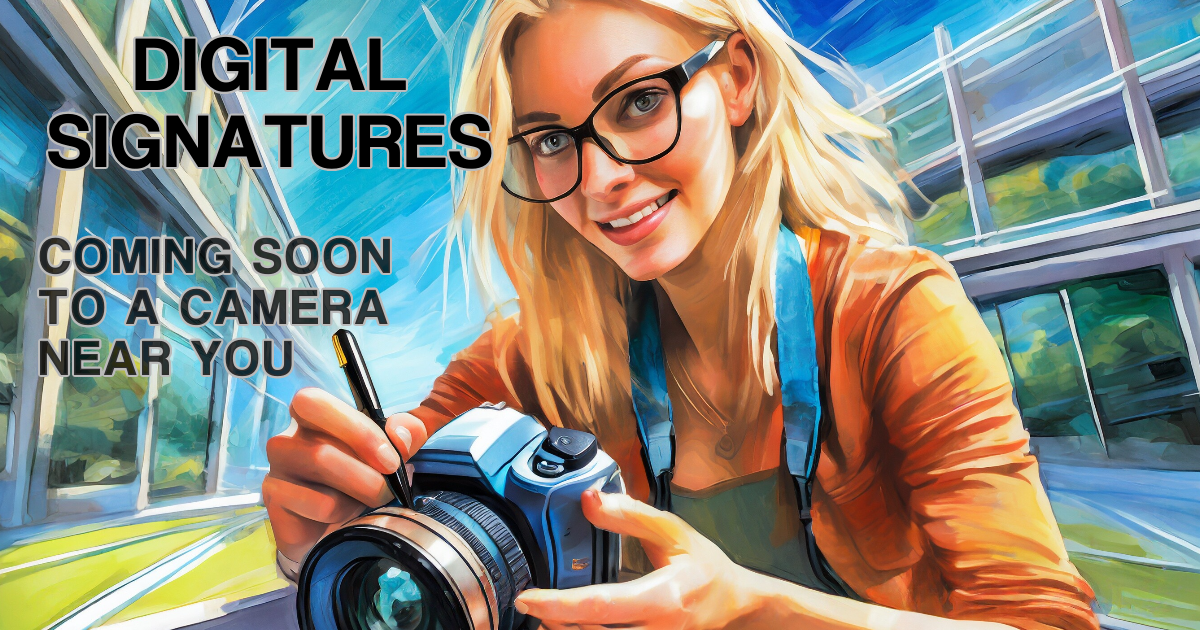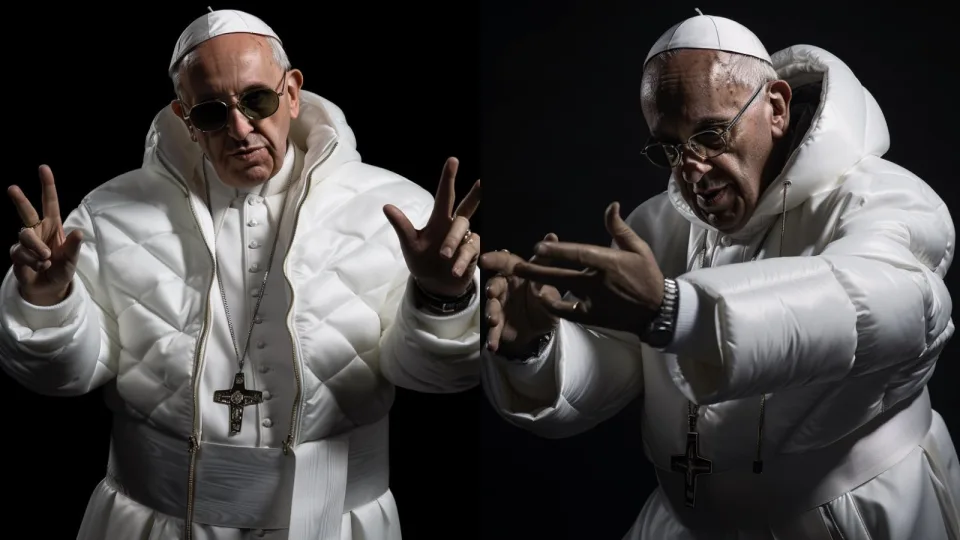January 10, 2024
Digital Signatures – Coming soon
The big three camera manufacturers have all announced that they will be introducing Digital Signatures in the coming year

The last few years have seen a massive advance in image technology. In camera, we have amazing autofocus systems driven by AI. The introduction of mirrorless technology has massively increased the frames per second rate. Our editing software can easily select skies, subjects and hair to help improve our editing processes. Adobe and others have even introduced the ability to produce photo-realistic images by simply typing a few lines of text. It has led many to think that it’s not too long before we almost don’t need a camera to produce a picture.
The downside of this technology is that some people are using artificial intelligence to produce ‘deep-fake’ images. These pictures have been passed off as news images, even though they never actually happened. The most famous examples are the Pope wearing a white puffer jacket and Donald Trump being arrested in handcuffs.

For newspapers and news photographers, this new technology causes real problems. There are strict rules as to how images can be edited. They should not remove or add something anything to the image. Readers should be able to trust that the picture they see happened exactly as shown. The leading camera manufacturers have pledged to allow digital watermarks to assure that the image submitted is ‘real’.
Setting the standard
In 2021, Adobe and Microsoft identified the issues AI could introduce to images, video, and audio. A foundation was set up to produce a standard to authenticate a digital file. As a result, the Coalition for Content Provenance and Authenticity (known as C2PA) was set up and now includes the likes of the BBC, Intel, Shutterstock, as well as camera manufacturers, Sony, Nikon, Canon and Panasonic as its members.
C2PA in action
There is already a camera available which meets the C2PA standard, although it’s unlikely that anyone reading this is using it. The Leica M11-P, retailing at £8000 for the body, writes information to the file, including the date, location and photographer that produced the image. As edits are made to the photo, they are also written into the file.

Anyone wanting to check the authenticity of a photograph taken on the Leica can upload their file to an online service. This verifies that the data attached to the file is valid and then provides either confirmation or otherwise that the file is as it was taken and hasn’t been altered or manipulated.
The big three camera producers, Sony, Canon and Nikon, have all announced that they will introduce C2PA into their latest camera bodies. Nikon has announced that it will offer mirrorless cameras with built-in authentication technology. Sony has gone one step further and said that its high-end cameras will be updated to include C2PA compliance through a firmware update in the next few months. Canon has only said it will launch a camera (most likely the R1) with the technology built-in in the first quarter of this year.
Will it be the solution?
There is widespread buy-in from the major camera producers and media companies in the C2PA solution, so it should be a good solution. However, I see a few issues in the road ahead. Firstly, the flagship models will be the only cameras that will have this tech built in over the next two or three years. If you have a DSLR, I see it as unlikely that a solution will be developed for dying technology – this will only be for mirrorless cameras. I know quite a few newspaper ‘staffers’ who are all shooting with DSLRs – are newspapers struggling to reach 5-digit print sales going to spend thousands of pounds updating cameras?
Secondly, most importantly, is that there will always be bad actors. I imagine there are people already working on ways to be able to ‘con’ the technology to make it appear that a Deep Fake is a valid image. It will be interesting to see how the organisations running C2PA respond to these challenges.
I welcome this addition to our cameras that can give confidence in the authenticity of an image. There have been too many competitions where a ‘winner’ has had the prize withdrawn after finding the images had been manipulated. The quicker the cameras have the technology added across the range, the better for all – and the better we will become as photographers.
Please give us your feedback.
If you’ve got any questions or comments, leave them below. You can sign up for the Edinburgh Photography Workshop monthly newsletter, where you’ll get regular updates on exciting things happening in photography and some great tips. Sign up by clicking here.
About the author
As well as running Edinburgh Photography Workshop, Rich Dyson is a professional photographer. His photographs are regularly used in newspapers such as The Times, Guardian and Daily Telegraph. He also had two solo exhibitions and was featured in a members sponsored exhibition in the Scottish Parliament. You can see and buy his photography at richdysonphotography.com.